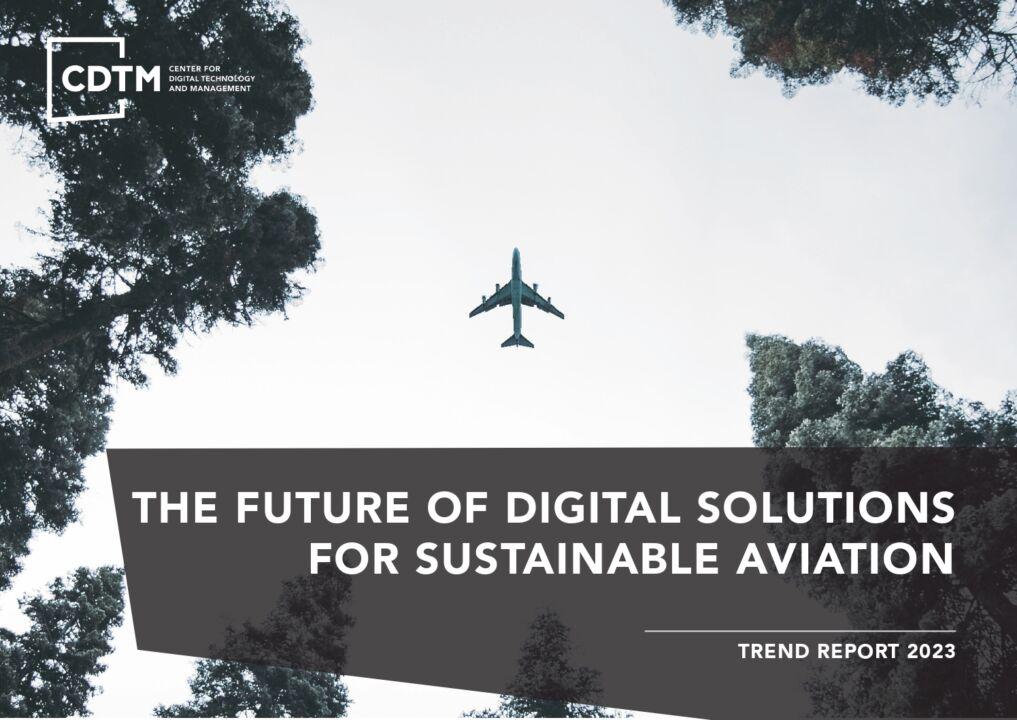The Future of Digital Solutions for Sustainable Aviation
Class: Summer 2023 Valencia

Abstract
Aviation plays a crucial role in global transportation, but its environmental impact has raised concerns about its long-term sustainability. Amidst the backdrop of global political and economic turmoil, as well as rapid technological advancements, we delve into what lies ahead for the sector of digital solutions in sustainable aviation. Will these advancements fundamentally change how aviation companies operate? Can sustainable aviation businesses thrive in the future? And how do environmental challenges and societal inclusivity factor into this equation?
Trends
Technology Trends
- Data Analytics for Resource Allocation
- Biometric Authentication
- Blockchain for Aviation Security
- Efficient Maintenance with Predictive AI
- Flight Operation Optimization
- 3D Modelling in Aircraft Procedures
Societal & Environmental Trends
- Travel’s New Wave
- Rising Pollution And Emissions
- Consumer Sustainability Value-Action Gap
- Increasing Airlines Commitment To Sustainability
- Waste Management and Resource Scarcity
Legal & Political Trends
- Impact of Instability on Aviation
- Increasing Regulations within Communications
- Standardizing Responsible AI
- Regulating Carbon Emissions
Economic Trends
- Circular Economy
- Emerging Low-carbon Economy
- Rise of Developing Economies
Business Models Trends
- Business Model Diversification
- Improvement of Supply Chains
Business Models
- 1. Workwise - Innovative Real-time Technology to Drive Efficiency and Motivation in Ground Operations
- 2. Aeroload - a Smart Solution for Equal Loading in the Air
- 3. Procuria - Digital Platform Allowing Airlines to Connect With Sustainable Suppliers
- 4. Fuelxpert - an Ai-powered Tool for in-depth Fuel Market Analysis and Insights
Drivers
Greenhouse Gas Emissions: GHG emissions are a critical factor in the context of sustainable aviation. They represent the industry’s and society’s environmental impact and contribution to global climate change. The level of these emissions is influenced by many factors, including the type of fuel used, the efficiency of flight routes, the technology incorporated in aircraft, and the overall operational practices of the industry. The management and reduction of these emissions are a matter of environmental responsibility and a determinant of the industry’s future trajectory. The industry’s ability to innovate, adapt, and commit to sustainable practices will be instrumental in navigating the challenges ahead.
Data sharing: Data sharing refers to exchanging relevant information, insights, or resources between companies for collaborative purposes. It involves deliberately sharing structured or unstructured data with trusted partners or stakeholders, such as customer data, market trends, sales, supply chain and research, operational metrics, or research findings. Data sharing enables businesses to enhance decision-making, facilitate cooperation, and potentially achieve mutual benefits. It is crucial in fostering knowledge exchange, optimizing processes, and identifying potential growth opportunities. Additionally, data sharing allows society to grow more sensible and informed, being key for awareness and responsibility.
Scenarios
The Open Smog: combines high emissions and significant data sharing in “The Open Smog” scenario. Unregulated industrial practices produce more GHG emissions, increasing climate change’s effects. In the meantime, the culture of unlimited data sharing raises privacy and security concerns, emphasizing the need for ethical data practices and responsible environmental management.
Gray Individualism: In the “Gray Individualism” scenario, there are many emissions and little data exchange. Knowledge sharing and innovation suffer from a lack of connectivity and collaboration. Lack of data sharing restricts access to important information, limiting development in key industries. The value of responsible data sharing for social well-being is shown by poor decision-making, decreased public engagement, and potential environmental deterioration.
Greed for Green: The scenario “Greed for Green” depicts a world with reduced emissions but little data exchange. Reduced connectivity blocks innovation and knowledge flow despite lower GHG levels. Initiatives for sustainability are hindered by the absence of data-driven optimization, which presents problems with resource allocation and environmental preservation.
“Fresh Flow”: Progress is driven by high data sharing and low emissions in the “Fresh Flow” scenario. Broad connectivity encourages innovation and cooperation, which speeds up sustainable practices. Data-driven insights enable well-informed choices. A clear, environmentally conscious future is made possible through efficient sustainability programs and optimal resource utilization.
Partners
